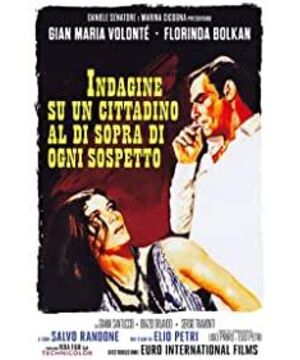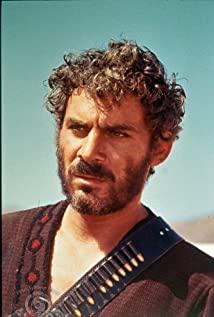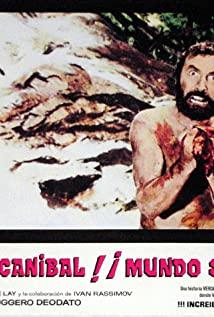In the second half of the 1960s, the name "Political Film" appeared in Western newspapers. The term "political film" has different opinions from the very beginning. Because as a category of ideology, it is difficult for movies to leave politics. In the film history that stretches for more than a century, there are countless movies directly or indirectly related to politics. The French film pioneer Méliès brought the Dreyfus case that shook France to the screen, which was the first step in the political expression of the film. After the October Revolution in Russia until the disintegration of the Soviet Union, and China from the left-wing film movement in the 1930s to today, films in all historical stages have forged an indissoluble bond with politics.
Appearing in the second half of the 1960s and reaching a climax in the mid-1970s, the "political films" of Western countries can be regarded as a product of a new social and political situation. For example, the intensification of social conflicts caused by the continual failure of the American war of aggression, the wave of youth rebellion, and the struggle for black liberation; in France, starting with the "May Storm" in 1968, the scale of student rebellion and workers’ strikes became larger and larger. Eventually led to De Gaulle's resignation; and in the capitalist world, Italy's leftist forces have always been the strongest. At that time, the Italian Communist Party had about 1.8 million members. The laborers' strike in 1968, the number of participants reached 11 million, accounting for 1/5 of the total population of Italy. The appearance of the general crisis trend of capitalism, large-scale social unrest, and the widespread awakening of the public's social consciousness have provided fertile soil for the emergence of a large number of "political films" in Western society during this period.
However, the political views and ideological concepts reflected in "political films" are diverse. Some political films reflect truly progressive and serious ideological content, and some political films hold views that are extremely "left" and extremely "right". , Pacifist, militaristic, or utopian. In Italy, some films promote clericalism, and some even are pornographic and political. It can be said that "political films" provide creators with various political opinions and ideological viewpoints with opportunities to express themselves.
Generally speaking, what we call "political movies" are mainly these two kinds of movies: one is that the basic content of the movie reflects the country to which it belongs, mainly the political facts and certain events of the western countries, and the story narrated can happen. In the present, past, or future; the other is that the film author expounds certain events, actions, phenomena, and facts with public political opinions, and does not conceal his support for a certain political program. From an aesthetic point of view, "political film" reflects the style characteristics of modern film art. Today's film styles are unclear, and it is difficult to define them with pure style signs. The basic tendency is the mutual penetration of different types.
Among the "political films" of western countries, the "political films" of Italy occupies the most important position. French film critic Michel Cardenac once said at the time: "It is becoming more and more difficult to talk about movies without talking about Italy." "The level of today's Italian film is very high." Its main symbol is "its Richness, maturity and diversity". The boiling political situation in Italy provides such soil. Italian artists are very concerned about the politics of their country. This is the basic condition for the production of Italian "political movies". During this period, Italian "political films" received great attention at major European film festivals, and the awards of Cannes and Venice Film Festivals were almost all received by Italy. At the biennial Moscow International Film Festival, Italian films have won three awards, and the award-winning works are mainly "political films." Although the award cannot be used as the only criterion for evaluating the quality of the film, the judges of these film festivals mainly consider the selection criteria from an artistic point of view, which can be unanimously praised by the judges of different political positions in Eastern and Western countries, indicating the artistic quality of the film Reached a considerable height.
The film "Investigation of an Unsuspected Citizen" is quite politically ironic from the perspective of the title. Every citizen has the dual identity of supervising and being supervised. What kind of citizen can enjoy the privileges that are not suspected? The film is vivid, exaggerated but credible through the murder process, criminal motives, subjective intentions, criminal psychology and subsequent actions of a senior police officer in Rome, as well as the corresponding attitudes of the judicial department on the crime facts. The description of the essay deeply exposes and sharply satires the judicial corruption and political corruption in Italy. With the style of crime and detection, and the smooth and ingenious narrative strategy, the director has rendered the Italian society such a serious and sensitive political theme extremely appreciatively.
The director of the film Elio Petri (1929~1982) is a member of the Communist Party of Italy. In the 1950s, he wrote scripts for many directors. The famous neo-realistic film "11 O'clock in Rome" was compiled and shot on the basis of his investigation report based on real events. Petri’s films often have a strong sense of social criticism, such as "The Murderer" (1961), which analyzes criminal psychology, "The Teacher from Vigevano" (1963), which mocks the illusion of Italy’s "economic miracle", and exposes Sicily. In a small town on the island, the political circles and the church colluded with the suspected criminal activities of the Mafia in "Everything deserves what they deserve" (1967), etc. Petri’s most famous films are trilogy reflecting social ills: "An Investigation of an Unsuspected Citizen" (1970), "Working Class Goes to Paradise" (Winner of the Palme d’Or at the Cannes International Film Festival in 1971) and " The property is not stolen" (1973). "Working Class Goes to Heaven" also uses a title that arouses the audience's curiosity. The protagonist of the film is a "model worker" named Lulu Massa, who works hard and doesn't play tricks because he works a lot of overtime. , He has no time to take care of the family. He likes women, but he doesn't have the strength to make love to his girlfriend. He got together with a group of college students who came to the factory to do agitation. His wife was annoyed and left him with the children. The police wanted to arrest college students because they incited a strike, and they ran away. Massa was expelled for ignoring factory regulations. He looked at the things he bought on credit in the house and asked himself: "Why do I work so hard and my life is not as good as those who have nothing to do all day?" The film hints: The problem of workers’ lives is far from being resolved. The reality is the paradise of his dreams. There is still a big distance between. In "Property Is Not Stolen", he discussed with the audience the role of money and property in capitalist society. After the film was released, it caused widespread domestic discussion.
There are also two important figures who have contributed to the Italian "political film". One is Francesco Rossi. His famous films include "The Hand that Controls the City" (1963) and "The Mattei Case" ( 1972) and "Wonderful Corpse" (1975). The other is Damiano Damiani. His representative works "Confessions of a Police Chief" (1970) and "The Interrogation is Over, Forget It" have caused widespread influence.
When understanding Italian "political film", one should not ignore its connection with neorealism. The core forces of Italian "political cinema", such as Petri, Rossi, and Damiani, all claim to be "the descendants of neorealism." Critics are also accustomed to refer to Italian "political films" as "the continuation and development of new realism." These representative figures have all worked as assistants or collaborators of neo-realistic film masters, and their film creation activities are all related to neo-realism. The excellent works in "Political Movies" have all lashed at the capitalist society, its political system, and even the insurmountable crises within this system. In terms of the depth of its social exposure and social criticism, it is obviously more advanced than neo-realism. step. These films not only dare to come into contact with acute and complex social and political issues, but while maintaining the credibility and documentary of life, they are good at expressing the original intentions of the creators through unique structural forms and novel modeling treatments that are compatible with the content. The work has reached a new level of art.
Another highlight of "Investigation of an Unsuspected Citizen" is the brilliant interpretation of the character of the police officer by the actor Jiang Maria Vorontai. With the emergence of Italian "political films", he starred in many such films and created a series of lifelike and ironic portraits. His vivid performances have enriched the "political films" a lot.
View more about Investigation of a Citizen Above Suspicion reviews











